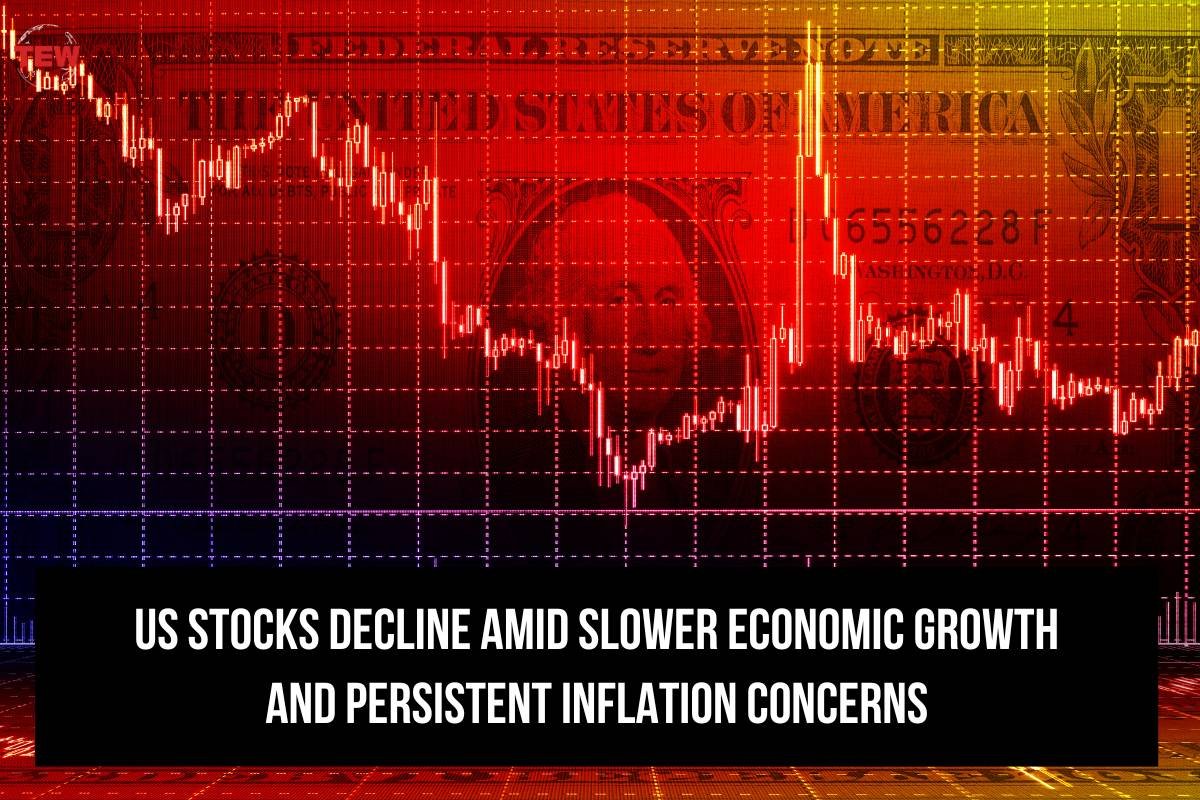US stocks markets experienced a downturn on Thursday sue to Economic Growth following the release of the latest Gross Domestic Product (GDP) report, which revealed a significant deceleration in economic growth during the first quarter of the year. The sluggish pace of growth, falling well below expectations, prompted a retreat across major indices, with the Dow, S&P 500, and Nasdaq Composite all posting losses.
The Dow Jones Industrial Average plummeted by 375 points, representing a 1% decline, while the broader S&P 500 and the technology-heavy Nasdaq Composite recorded losses of 0.5% and 0.6%, respectively. Investor sentiment soured as the data suggested a prolonged wait for the Federal Reserve to implement its anticipated rate cut.
Disappointing GDP Report Sends Markets Tumbling due to Economic Growth
Chris Zaccarelli, chief investment officer at Independent Advisor Alliance, characterized the GDP report as “the worst of both worlds,” citing both slowing economic growth and persistent inflationary pressures. The disappointing figures contrast sharply with the robust performance observed in the latter half of 2023, during which GDP surged by 4.9% and 3.4% in the third and fourth quarters, respectively.
Adding to concerns, the GDP chain price index, a key metric for tracking inflation, surged from 1.6% to 3.1% on an annualized basis in the first quarter. This acceleration in inflationary pressures has fueled uncertainty among investors, leading them to revise their expectations for Federal Reserve rate cuts. Initially anticipating six cuts at the beginning of the year, investors now foresee only one cut for the remainder of the year, according to the CME FedWatch tool.
The specter of stagflation, characterized by stagnant economic growth coupled with persistent inflation, has resurfaced, sparking anxieties reminiscent of the 1970s. JPMorgan Chase CEO Jamie Dimon expressed concerns about the potential resurgence of stagflation during a recent address at the Economic Club of New York, warning of its adverse effects on profits, consumers, and employment.
Lingering Inflationary Pressures Heighten Investor Anxiety
Historical analysis underscores the potential ramifications of stagflation, with investors suffering significant losses in the US stock market between 1966 and 1981, a period synonymous with stagflation. Adjusted for inflation, investors experienced a decline of more than 35%, according to research by Ben Carlson at Ritholtz Wealth Management.
The downturn in US stock markets was exacerbated by a sell-off in the technology sector, as investors fretted over the impact of a slowing economy on tech companies’ growth prospects. Meta, formerly Facebook, saw its shares plummet by 10.5%, while Microsoft and Amazon recorded declines of 2.5% and 1.7%, respectively.
Against a backdrop of heightened economic uncertainty and lingering inflationary pressures, investors remain wary as they navigate a volatile market environment amidst ongoing earnings season challenges.





